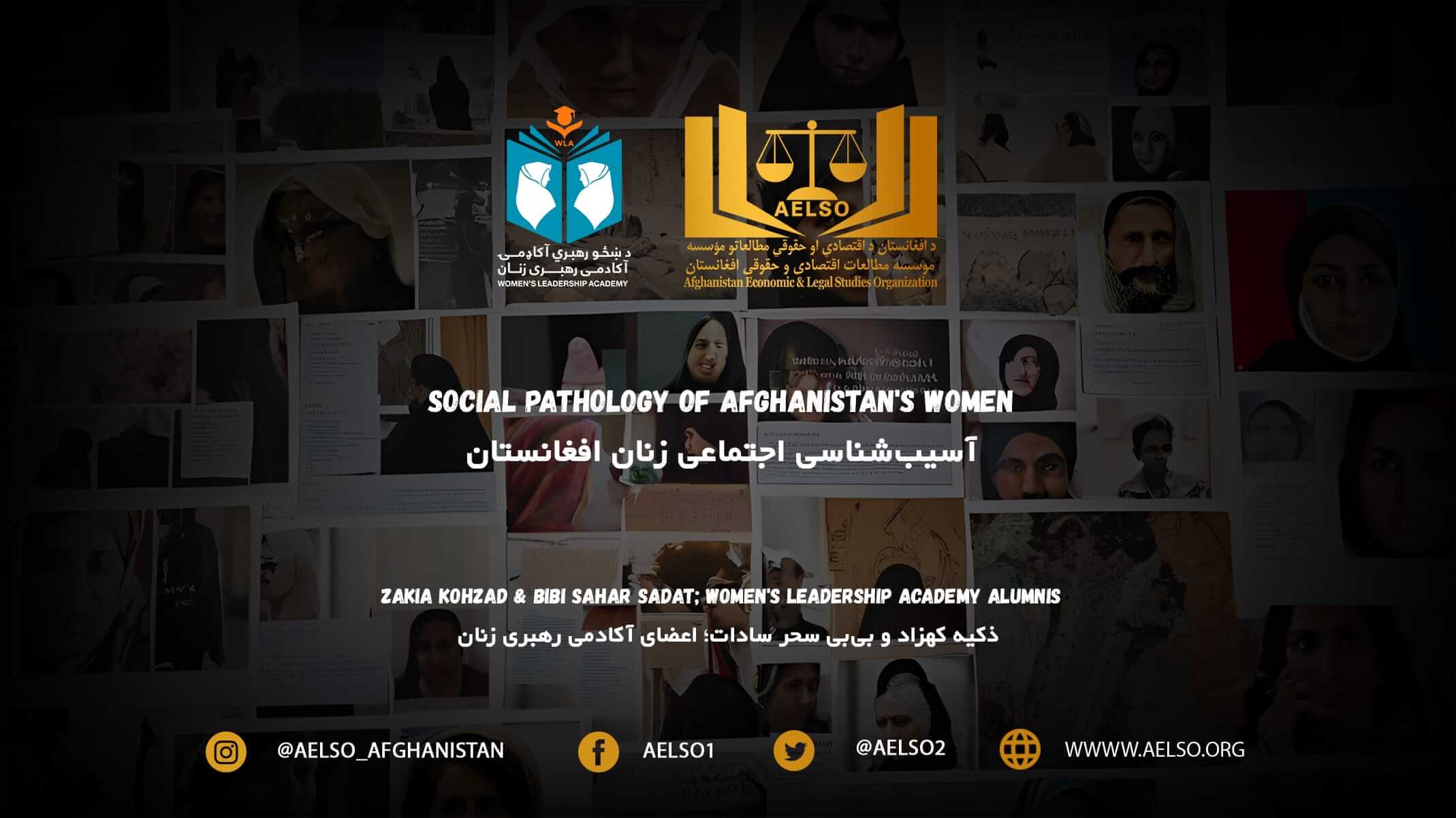
Social Pathology of Afghanistan’s Women
The challenges and problems faced by women in Afghanistan, particularly at the social level, are considered significant issues. These problems stem from traditionalism and patriarchy, which are deeply rooted in our culture and require deeper examination. Women in Afghanistan face gender discrimination from birth and are constantly subjected to oppression. They are deprived of their most basic human rights and are prevented from active participation in social, economic, and political arenas.
The three key elements of social power in Afghanistan wealth, status, and freedom of action are predominantly controlled by men, preventing women from gaining the authority and legitimacy needed to acquire social power. The lack of social power traps women in a vicious cycle of silence and stagnation, hindering their political initiative, intellectual creativity, social participation, and independent economic management.
Women, as a social group, are highly vulnerable and powerless, enjoying only minimal cultural, social, and political rights. As a result, all social movements and transformations are controlled by men.
For development to occur, it is essential that women and men participate equally in social activities. In developed countries, this issue is taken seriously, and women actively collaborate alongside men in the advancement and development of society. However, in developing countries like Afghanistan, women are considered second-class citizens and hold no significant social status.
Negative attitudes towards women, gender discrimination, and violence are only part of the larger challenges that Afghan women face. To address these issues, deep planning and continuous efforts by women to improve their situation are essential.
Keywords: Social Pathology, Women, Patriarchy, Discrimination, Violence.